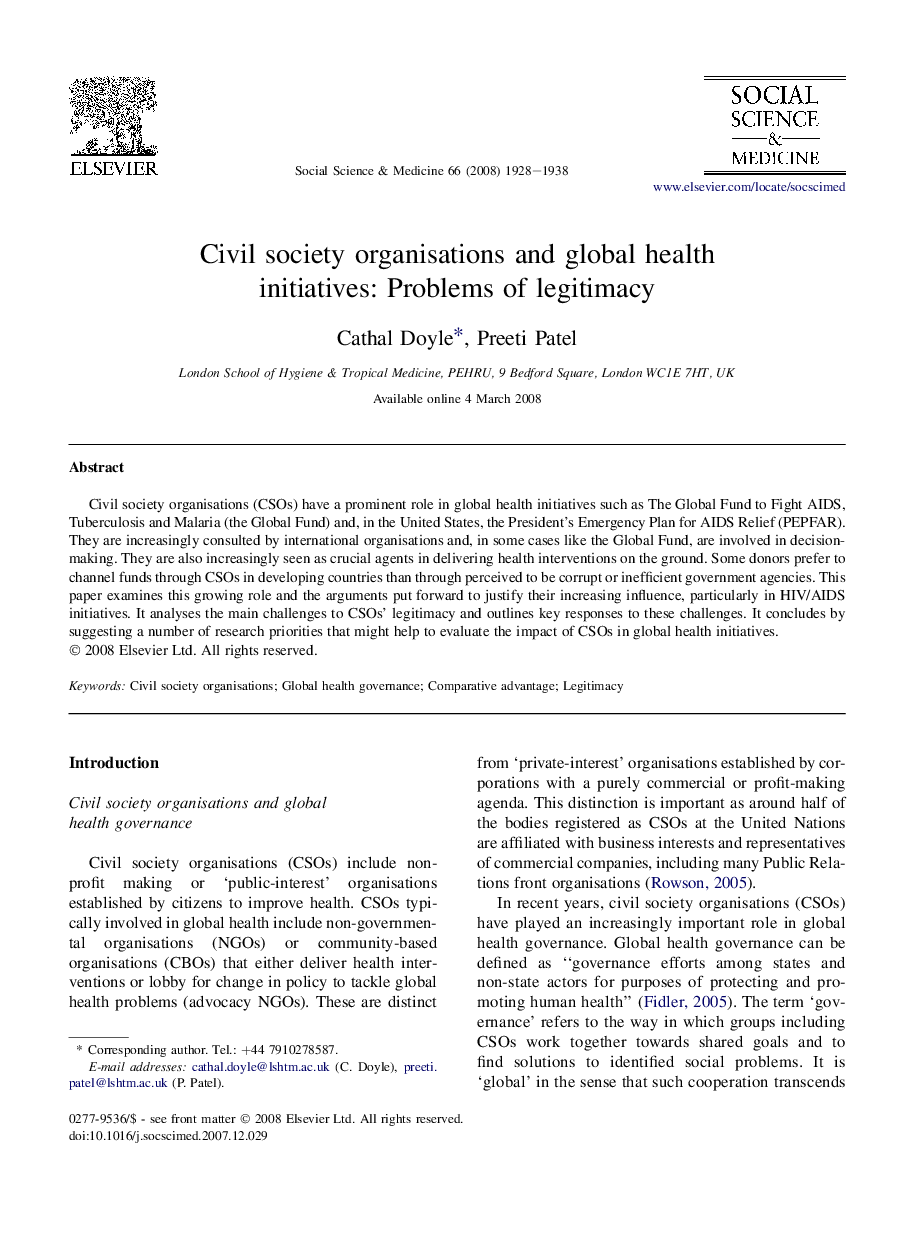| Article ID | Journal | Published Year | Pages | File Type |
|---|---|---|---|---|
| 10472120 | Social Science & Medicine | 2008 | 11 Pages |
Abstract
Civil society organisations (CSOs) have a prominent role in global health initiatives such as The Global Fund to Fight AIDS, Tuberculosis and Malaria (the Global Fund) and, in the United States, the President's Emergency Plan for AIDS Relief (PEPFAR). They are increasingly consulted by international organisations and, in some cases like the Global Fund, are involved in decision-making. They are also increasingly seen as crucial agents in delivering health interventions on the ground. Some donors prefer to channel funds through CSOs in developing countries than through perceived to be corrupt or inefficient government agencies. This paper examines this growing role and the arguments put forward to justify their increasing influence, particularly in HIV/AIDS initiatives. It analyses the main challenges to CSOs' legitimacy and outlines key responses to these challenges. It concludes by suggesting a number of research priorities that might help to evaluate the impact of CSOs in global health initiatives.
Related Topics
Health Sciences
Medicine and Dentistry
Public Health and Health Policy
Authors
Cathal Doyle, Preeti Patel,
